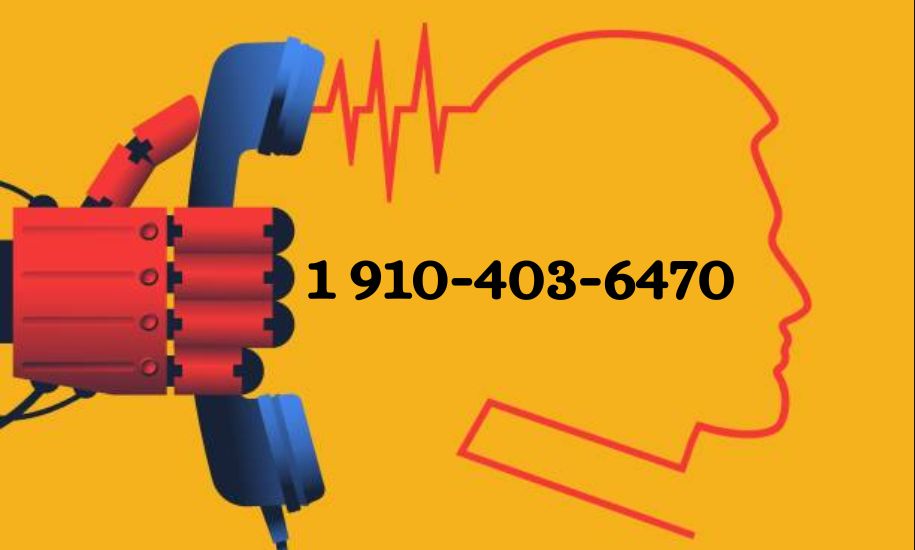Who Is Calling from 1 910-403-6470? Unmasking the Truth

In today’s digital age, phone scams and spam calls have become a common nuisance. One number that has been raising eyebrows lately is 1 910-403-6470. If you’ve received a call from this number and wondered, “What is 1 910-403-6470?”—you’re not alone. In this long-form article, we will investigate the origins, patterns, and potential threats associated with this number. We’ll also provide tips on how to handle such calls and protect yourself from fraud.
What is 1 910-403-6470?
The number 1 910-403-6470 has been frequently flagged on online forums, review sites, and call-blocking applications. Many users have reported receiving unwanted calls from this number, often with suspicious or unclear intentions. The lack of a clear caller identity and the repeated nature of the calls have led to growing concerns that the number may be associated with scams, robocalls, or phishing attempts.
To understand the background of this number, let’s break it down:
- Area Code 910 is registered in North Carolina, specifically the southeastern part of the state, including cities like Wilmington, Fayetteville, and Lillington.
- The 403 prefix indicates a specific regional location, also tracked to Lillington, NC.
- The number appears to be operated by Cellco Partnership d/b/a Verizon Wireless.
Despite being a seemingly legitimate number, the behavior associated with its calls raises red flags.
Common Complaints and Reports
Thousands of people have searched for “What is 1 910-403-6470?” after experiencing repeated or strange calls. Here are some of the most common complaints:
- Frequent Calling: Users have reported being called multiple times a day, sometimes within minutes of each other.
- No Voicemail Left: Even after several calls, the caller rarely leaves a voicemail message.
- Hang-Up or Silent Calls: Some people reported that the caller hangs up immediately or there is silence on the line.
- Robocalls or Recorded Messages: In some cases, a robotic voice delivers vague or threatening messages.
- Scam-like Behavior: A few individuals mentioned the caller pretending to be from a bank, government agency, or debt collection company without verifying details.
These behaviors closely mirror the patterns of phone scams or spam marketing calls, making it crucial to stay vigilant.
Is 1 910-403-6470 a Scam Number?
Although there is no official confirmation that 1 910-403-6470 is a scam number, the overwhelming anecdotal evidence suggests that caution is warranted.
According to reports from websites like pcmagnews.com, flamesinsight.com, and toolsplan.com, the number has been linked to potential:
- Phishing Attempts: Callers trying to collect personal or financial information.
- Debt Collection Scams: Impersonators claiming to be legitimate collection agencies.
- Caller ID Spoofing: The number may be spoofed to appear local or trustworthy, while the real origin is masked.
Whether it’s a real caller using underhanded tactics or a spoofed number altogether, the risks remain the same.
Who Could Be Behind the Number?
There are a few possibilities:
- Robocallers: Automated systems used for mass calling by marketing firms or scammers.
- Scammers: Individuals or criminal rings using spoofed numbers to gain victims’ trust.
- Debt Collectors: Some legitimate but aggressive agencies use robocalls for debt recovery.
- Survey/Marketing Companies: Businesses trying to get consumer insights may use similar calling patterns.
Until verified, it’s hard to pinpoint exactly who is making the calls. But judging by the calling behavior, it leans more toward nuisance or scam calls.
How to Protect Yourself from Suspicious Calls
If you’ve received a call from 1 910-403-6470, here are actionable steps to stay safe:
1. Don’t Answer Unknown Numbers
Let unknown calls go to voicemail. Scammers rarely leave credible messages.
2. Do Not Share Personal Info
Never give out personal information like your Social Security Number, bank account, or address.
3. Use Call Blocking Apps
Install apps like Hiya, Truecaller, or Nomorobo to identify and block spam numbers.
4. Report the Number
You can report scam numbers to the Federal Trade Commission (FTC) or use websites like thisnumber.com and 800notes.com.
5. Block the Number
Use your smartphone’s blocking feature to stop further calls from that number.
6. Check Phone Settings
Both Android and iOS offer settings to silence unknown callers or limit call access.
What to Do If You Answer a Suspicious Call
Sometimes, you may pick up the call unknowingly. Here’s what you should do:
- Stay Calm: Don’t react emotionally to any threats or urgent language.
- Hang Up Immediately: If the caller sounds suspicious or robotic, hang up.
- Don’t Press Any Keys: Some robocalls prompt you to press a number to opt out. This can confirm your number is active.
- Follow Up: If they mention a legitimate business, look up the official contact number and call to verify.
Can You Trace the Number?
Technically, yes—but with limitations. You can:
- Use reverse phone lookup tools on websites like Whitepages, Spokeo, or Truecaller.
- Ask your carrier for call trace support (some charge a fee).
- File an official complaint if the call is linked to harassment.
However, due to caller ID spoofing, these methods may not always reveal the true source.
Is There Any Legitimate Use of This Number?
Some numbers that exhibit scam-like behavior might still be legitimate. For example:
- Companies may outsource their calling to third-party vendors.
- Government agencies might use generic caller IDs.
- Automated systems might not be properly configured.
But in the case of 1 910-403-6470, the high volume of negative reports makes legitimacy unlikely.
User Testimonials
John M. from Texas:
“I got 4 calls in one day. No voicemail. I answered once and it was just silence. Blocked immediately.”
Rosa L. from North Carolina:
“They claimed I owed money to a payday lender I never used. Sounded fishy. I hung up and reported it.”
Daniel S. from Florida:
“It felt like a robocall trying to trick me into saying ‘yes’ for voice recording purposes.”
These stories reflect the typical experience for most recipients of calls from this number.
Final Thoughts
Phone numbers like 1 910-403-6470 represent a growing challenge in our hyper-connected world. Whether it’s a robocall, a phishing attempt, or something more sinister, awareness is your best defense. By staying informed and cautious, you can protect your privacy and avoid falling victim to phone scams.
If you ever wonder again, “What is 1 910-403-6470?”, you’ll know the full story and how to handle it.
This in-depth guide is brought to you by Mating Press, your go-to blog for thoughtful analysis and real-world awareness on today’s digital landscape.


